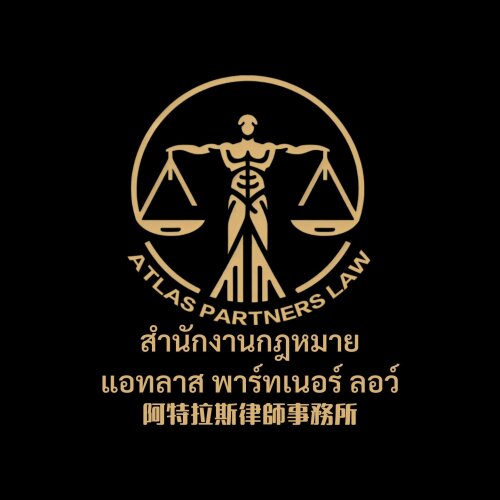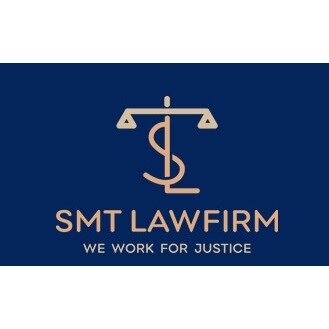Best Arrests & Searches Lawyers in Chiang Mai
Share your needs with us, get contacted by law firms.
Free. Takes 2 min.
List of the best lawyers in Chiang Mai, Thailand
Thailand Arrests & Searches Legal Articles
Browse our 1 legal article about Arrests & Searches in Thailand written by expert lawyers.
- What to do After Being Arrested in Thailand
- Getting arrested in Thailand is a frightening and stressful experience, but if you keep calm and know what to do, you can make things much easier for yourself. In this article, we will go through the key steps you should take after being arrested in Thailand, and help you deal... Read more →
About Arrests & Searches Law in Chiang Mai, Thailand
The legal framework surrounding arrests and searches in Chiang Mai, Thailand, is primarily governed by the Thai Criminal Code and the Criminal Procedure Code. These laws outline how law enforcement officers can conduct arrests and searches, emphasizing the need to protect individual rights while maintaining public safety. In Chiang Mai, as with the rest of Thailand, legal procedures must be adhered to strictly to ensure the lawful conduct of searches and arrests. This includes obtaining proper warrants, with some exceptions allowed for exigent circumstances. Understanding these laws is crucial for residents and visitors who may find themselves involved in any legal proceedings related to arrests or searches.
Why You May Need a Lawyer
There are numerous situations in which individuals in Chiang Mai might require legal assistance concerning arrests and searches. If you are arrested or believe your rights have been violated during a search, a lawyer can help protect your legal rights, provide expert advice, and represent you in court if necessary. Additionally, if you face charges that stem from an arrest or have evidence against you obtained through a search, a lawyer can help challenge any improper procedures or evidence. Legal counsel is also vital for understanding complex regulations and ensuring fair treatment under the law.
Local Laws Overview
Chiang Mai, like all of Thailand, adheres to specific laws related to arrests and searches that are crucial for maintaining justice. Key aspects include:
- The requirement for a valid arrest warrant, except in situations involving immediate criminal activity.
- Search warrants must be issued by a court, except when there is a probable cause to believe that evidence will be destroyed or removed before a warrant can be obtained.
- The importance of Miranda rights, which must be read to individuals being arrested to inform them of their rights to remain silent and have an attorney present during questioning.
- Specific procedures defining how searches should be conducted, ensuring they do not violate the individual’s right to privacy.
Frequently Asked Questions
What should I do if I’m arrested in Chiang Mai?
Remain calm, do not resist, and ask for a lawyer immediately. Remember your right to remain silent and do not say anything that may be used against you.
Can police search my property without a warrant in Chiang Mai?
Police typically need a warrant to search private property. However, exceptions include hot pursuit or if they have probable cause to believe evidence might be imminently destroyed.
What rights do I have during a police search?
You have the right to ask for their identification and warrant. If they lack a warrant or probable cause, you can refuse entry. Note their actions if you believe your rights are violated.
How can a lawyer help with arrest issues?
A lawyer can ensure your rights are protected, provide advice on legal procedures, represent you during questioning and court proceedings, and help challenge any violations of your rights.
What should I do if I feel my rights were violated during an arrest or search?
Document everything you remember about the incident, including names, badge numbers, and what was said. Contact a lawyer to discuss potential legal actions.
Is it possible to challenge the validity of a search warrant in court?
Yes, your lawyer can challenge a search warrant in court if there is evidence that it was issued or executed improperly.
Do I need to speak Thai to handle legal matters related to arrests?
While understanding Thai can be beneficial, legal proceedings will often have translation services, and your lawyer can help interpret for you.
What happens if evidence is obtained unlawfully during a search?
Your lawyer can file a motion to suppress the evidence, arguing that it was obtained in violation of your rights and should not be admissible in court.
Can I refuse a search if police don’t have a warrant?
Yes, you can refuse if they do not have a warrant, unless they have legal grounds to conduct a search without one, such as consent or exigent circumstances.
What is a summons, and how does it differ from being arrested?
A summons is an order to appear in court, typically for minor offenses. It is not an arrest, but failure to respond can lead to a warrant for your arrest.
Additional Resources
Consider consulting the following resources for more information:
- Chiang Mai Legal Aid Office - Can provide guidance and support for residents and visitors needing legal help.
- Thai Bar Association - Offers legal education and assistance by certified professionals.
- Office of the Judiciary of Thailand - Offers detailed information on legal proceedings and your rights.
- Local law firms specializing in criminal law who can provide personalized advice and representation.
Next Steps
If you need legal assistance regarding arrests or searches in Chiang Mai, begin by reaching out to a local attorney specializing in criminal law. Many offer free initial consultations and can provide you with insights into your specific situation. Make sure to prepare all relevant documentation and details of your case before the meeting. It's also wise to understand your rights and familiarize yourself with local legal processes to actively participate in your defense strategy. Stay informed, ask questions, and engage proactively with your legal representation to ensure the best possible outcome for your circumstances.
Lawzana helps you find the best lawyers and law firms in Chiang Mai through a curated and pre-screened list of qualified legal professionals. Our platform offers rankings and detailed profiles of attorneys and law firms, allowing you to compare based on practice areas, including Arrests & Searches, experience, and client feedback.
Each profile includes a description of the firm's areas of practice, client reviews, team members and partners, year of establishment, spoken languages, office locations, contact information, social media presence, and any published articles or resources. Most firms on our platform speak English and are experienced in both local and international legal matters.
Get a quote from top-rated law firms in Chiang Mai, Thailand — quickly, securely, and without unnecessary hassle.
Disclaimer:
The information provided on this page is for general informational purposes only and does not constitute legal advice. While we strive to ensure the accuracy and relevance of the content, legal information may change over time, and interpretations of the law can vary. You should always consult with a qualified legal professional for advice specific to your situation.
We disclaim all liability for actions taken or not taken based on the content of this page. If you believe any information is incorrect or outdated, please contact us, and we will review and update it where appropriate.














